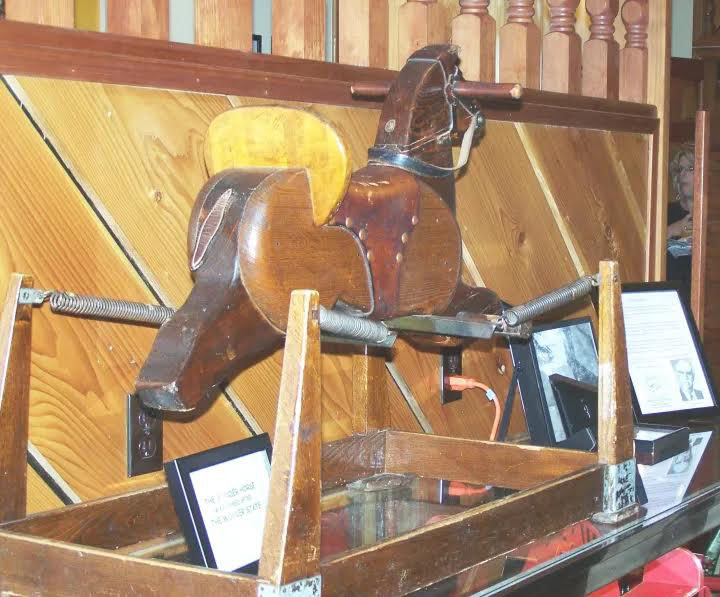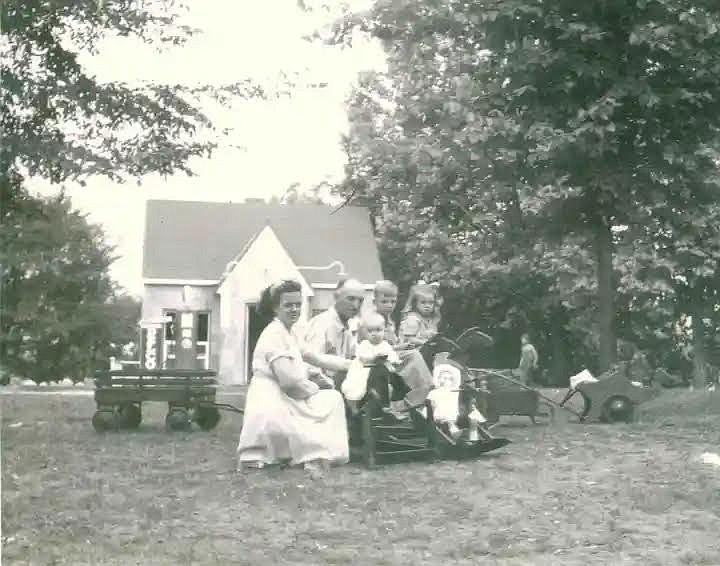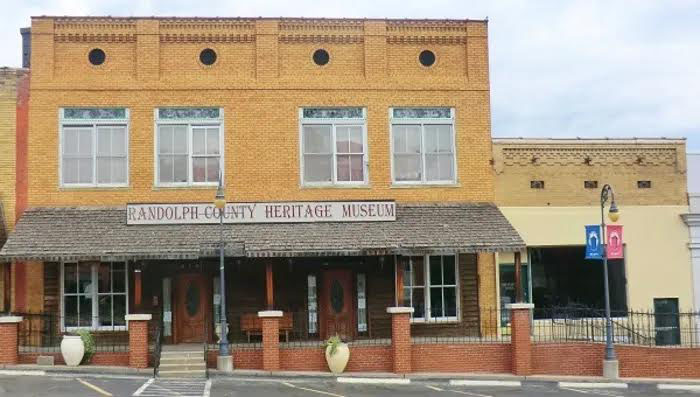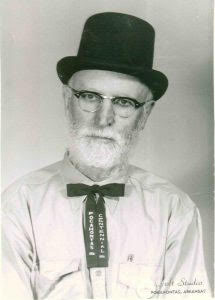My children loved the toy and would ride it for hours, bouncing up and down and traveling to whatever worlds and places were in their young minds. I could identify with them, having traveled the same road and places some 20 years before.
The Wonder Horse was one-of-a kind toy, an animal-shaped figure that rocked back and forth, and up and down. My kids would ride it until exhausted and, at times, were known to fall asleep in the saddle. A favorite toy for more than 50 years, the Wonder Horse was created and patented right here in Arkansas.
William "Bill" Baltz was an engineer and surveyor for Randolph County. His young 3-year-old son Billy was turning three in December 1939. At 51 years old himself, Mr. Baltz realized he was getting to old to bounce the young boy on his knee, imitating the trot of a horse. An inventor and tinkerer, he decided to devise a toy that could do the work for him.
Working at home with old cypress floor joists and packing crates, he devised a horse-shaped toy suspended on four posts by thick, heavy springs. Handles connected to the side of the horse's head allowed a young rider to bounce, rocking back and forth and up and down.
Because Arkansas was then known as the "Wonder State," Baltz named the horse the Wonder Horse.
The toy was an immediate hit with his kids. They would sit the horse out in their yard in downtown Pocahontas and take turns bouncing back and forth for hours. Passersby noticed the toy and began to stop and get Bill to make one for their family.
By 1950, Baltz was making 50 horses a day in this basement shop, but could not keep up with demand. He applied for and received a patent in 1945 and A.G. Manning, owner of Associated Woodworks of Memphis, bought the patent and began making various models of the Wonder Horse.
Some of the models of the horse began to utilize hard plastic in place of wood and deluxe models sold for as much as $29.95. Advertisements described the horse as a toy with many speeds and gaits and promised that children using it would develop rhythm and muscle coordination. One advertisement promised that the battery-free horse would run for hours on the energy supplied by a few chocolate chip cookies.
The Wonder Horse harkens back to a simpler time and age. Reminded online or in a conversation about the horse, people will begin to tell favorite tales of growing up and of the Wonder Horse they bounced on as a kid.
Thousands were made and many were passed on to children and grandchildren on as family heirlooms. Many attics still contain the old models and are prized by antique collectors. The price for the newer models starts at around $350 and the price increases quickly by age.
Baltz, a man of humble German-migrant origin who couldn't speak English until he was nine years old, did pretty well for himself. Successful as a surveyor and store owner even before his invention, he made enough money to raise a large family and to purchase a 1,500-acre farm in Randolph County.
Baltz died in 1979 at the age of 90 and credited his long and healthy life to the fact that he "never smoked and never drank whiskey." A large display in the Randolph County museum is dedicated to his invention, but don't expect to see the Baltz original. Like the ad said, the Wonder Horse will outlast your family car. The original is still in the Baltz family, but several early models can be seen at the museum.
The large Baltz family spread across the state. Dennis Baltz, a nephew, became co-owner and operator of the large Cv's IGA grocery stores. Others are farmers and businessmen, but all have the creative knack.
Talking to the wife of my friend Bill Baltz, a nephew of the original William, she explained, "The Baltz just have the knack, they can take anything and make something that works out of it."
The Wonder Horse stands as testament to that, an outstanding example of Arkansas enterprise and ingenuity.
 A large display in the Randolph County museum is dedicated to the Wonder Horse, but don't expect to see the Baltz original. Like the ad said, the Wonder Horse will outlast your family car. The original is still in the Baltz family, but several early models can be seen at the museum. (Photo courtesy Randolph County Museum Archive)
A large display in the Randolph County museum is dedicated to the Wonder Horse, but don't expect to see the Baltz original. Like the ad said, the Wonder Horse will outlast your family car. The original is still in the Baltz family, but several early models can be seen at the museum. (Photo courtesy Randolph County Museum Archive)


